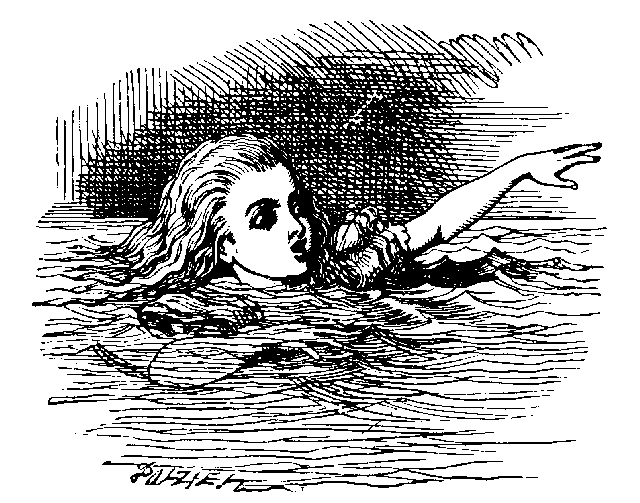
I’ve never quite understood Lewis Carroll’s Alice’s Adventures in Wonderland, which is probably the point because it’s pretty much an exercise in nonsense. Alice follows a white rabbit with a pocket watch through a rabbit hole where a potion shrinks her to the size of a doll then a cake makes her nine-feet-tall and she cries a lake of tears and…
It gets crazier from there. Ever play croquet with a flamingo?
But I’m reading it now with my daughter and it’s resonating for me. Alice becomes totally disoriented—and lots of people (including me) are feeling disoriented by the weather and the world and what not. And sometimes disorientation becomes the norm for a while.
Feeling disoriented can be unsettling in life, but it’s great for stories. For example…
“Cathedral” – a short story by Raymond Carver in which a curmudgeonly guy is thrown off balance when his wife invites an old friend, a blind man, to come stay with them.
Coming to America – a movie in which a pampered prince from Zamunda comes to NYC to search for a bride, posing as a commoner, a classic fish-out-of-water story.
The Year of Magical Thinking – a memoir by Joan Didion in which Joan’s husband of 40 years suddenly passes away, leaving her very much alone.
Think of the really disorienting times in your life, like…
You bring home that baby from the hospital and you’ve got no earthly idea what to do and hopefully it doesn’t turn into a pig like the baby in Wonderland.
You’re driving along and the sky is an eerie pastel shade and the radio tells you to stay away from a certain intersection because a tornado is heading right there and you realize you’re at that very intersection.
You travel to Marrakesh and you’ve been told repeatedly not to let a stranger act as your guide, but you’re wandering through the labyrinthine medina jet-lagged and you do just that and who knows where this guide is leading you?
Yeah, those things happened to me.
What’s really interesting is how your characters handle the disorientation that overtakes them. Do they find themselves drowning, or learn to ride the waves, or discover how to reach a saving shore? Or…something else?
And, hey, we have the perfect contest for these disorienting times: Invent a Word. Words help some of us make sense of things, and we’re giving you permission to add something entirely new to our language. Lewis Carroll was quite good at inventing words. Like galumph.
And as the Mock Turtle in Wonderland says, “Why, if a fish came to me, and told me he was going a journey, I should say ‘With what porpoise?’”

Alex Steele
Gotham President






